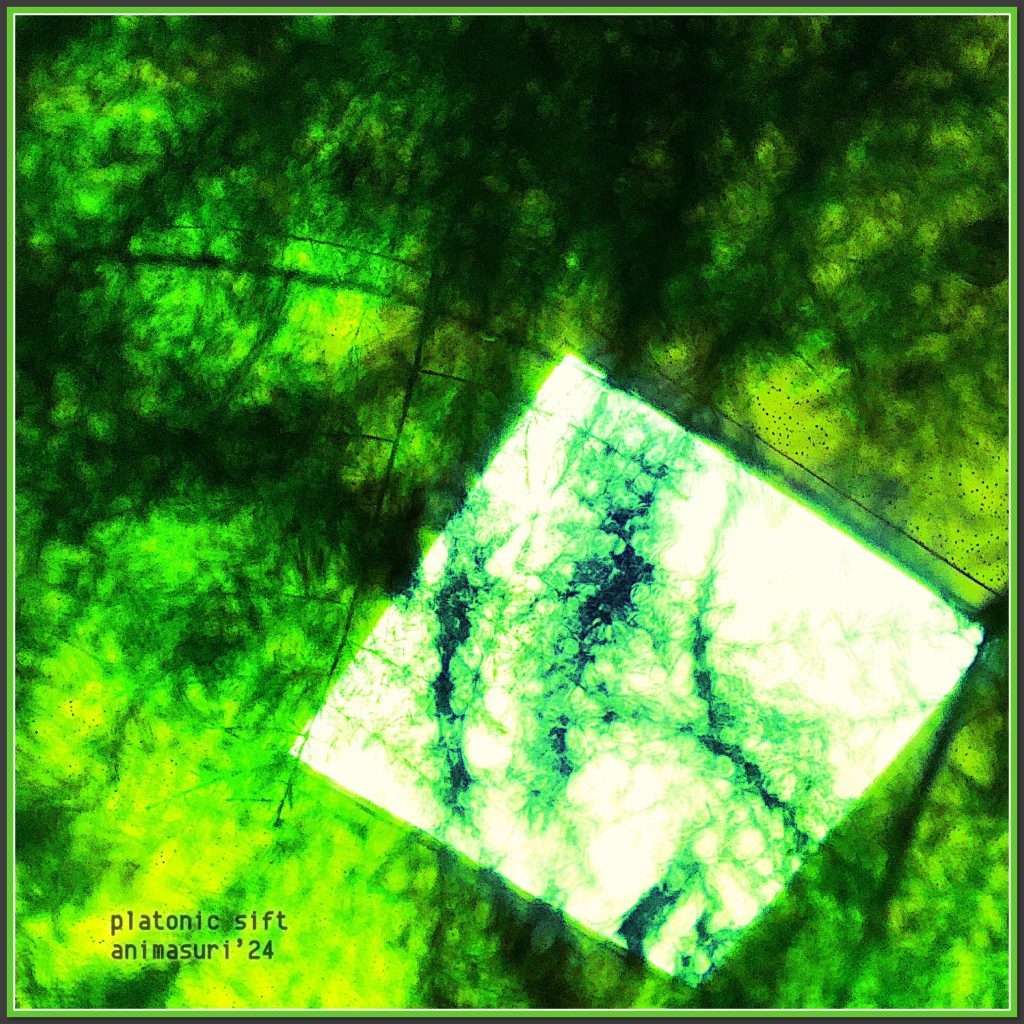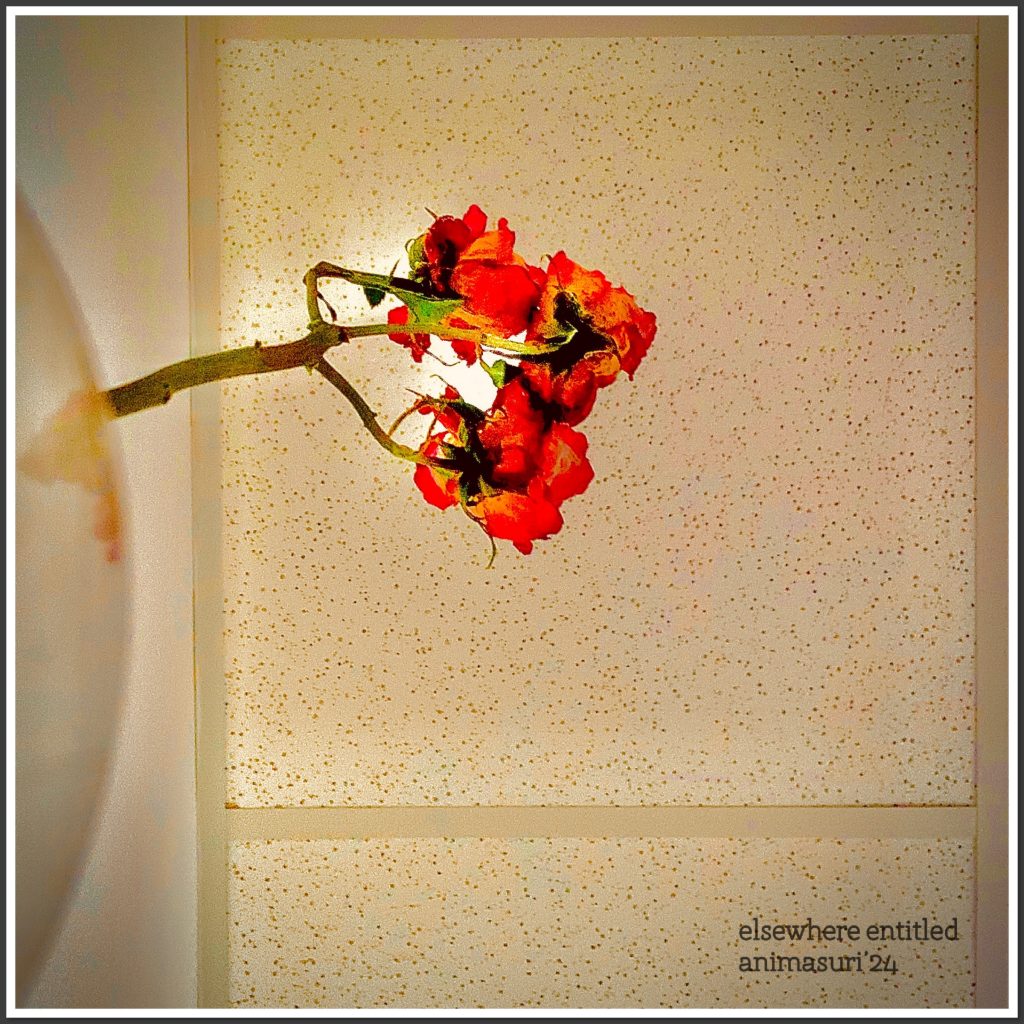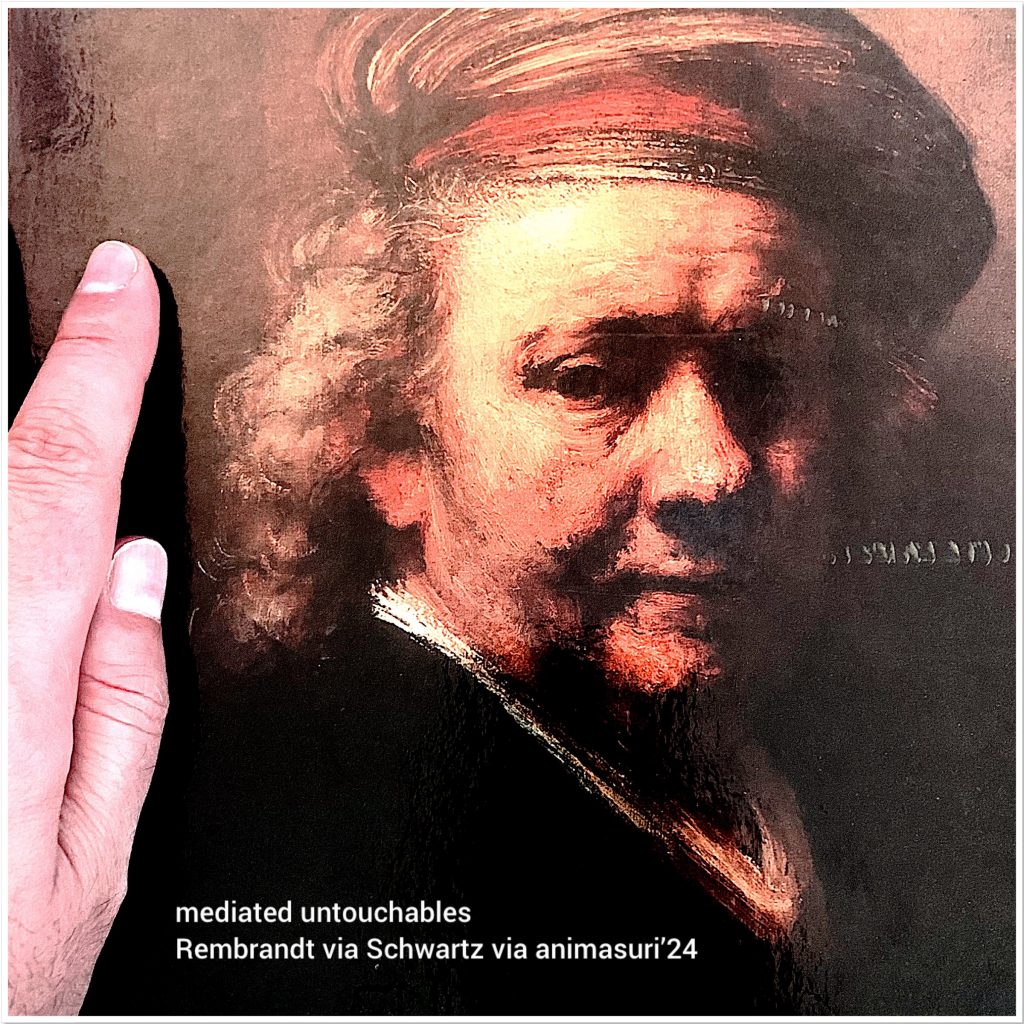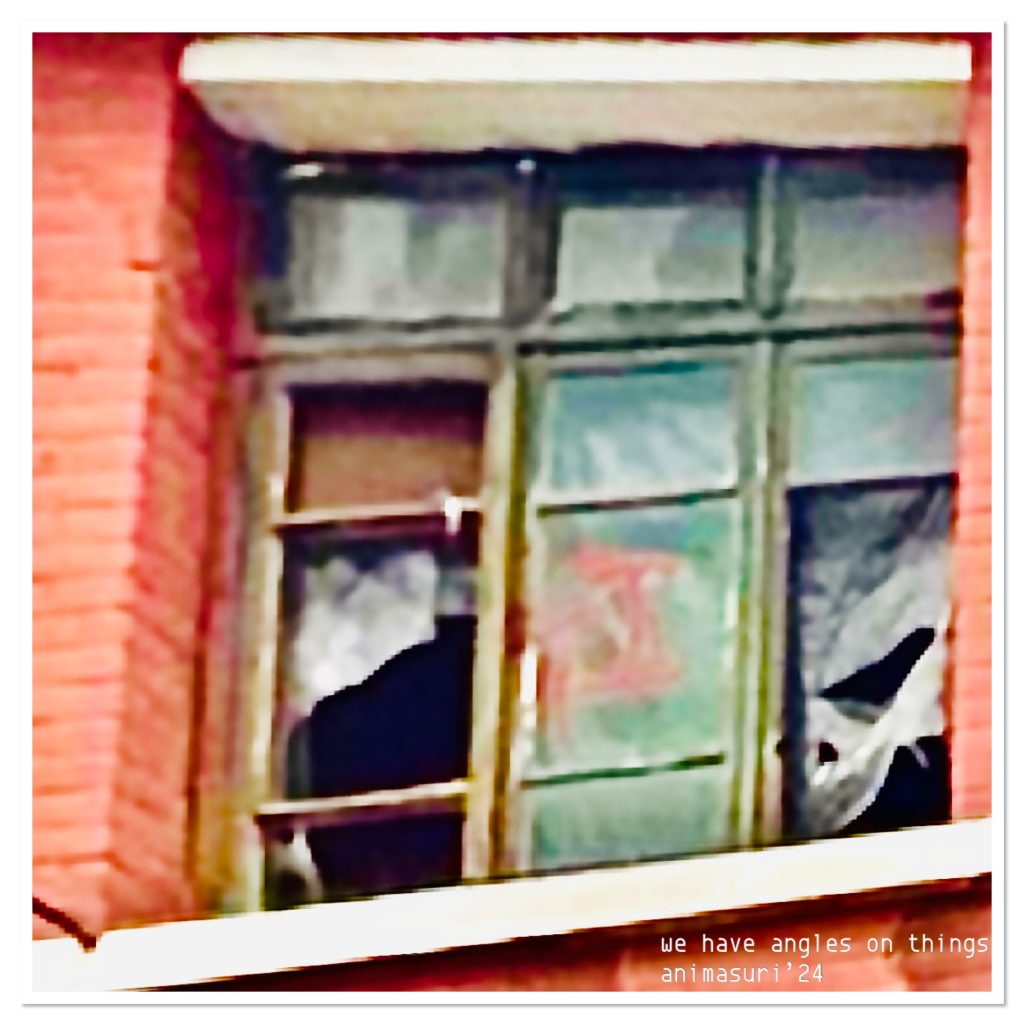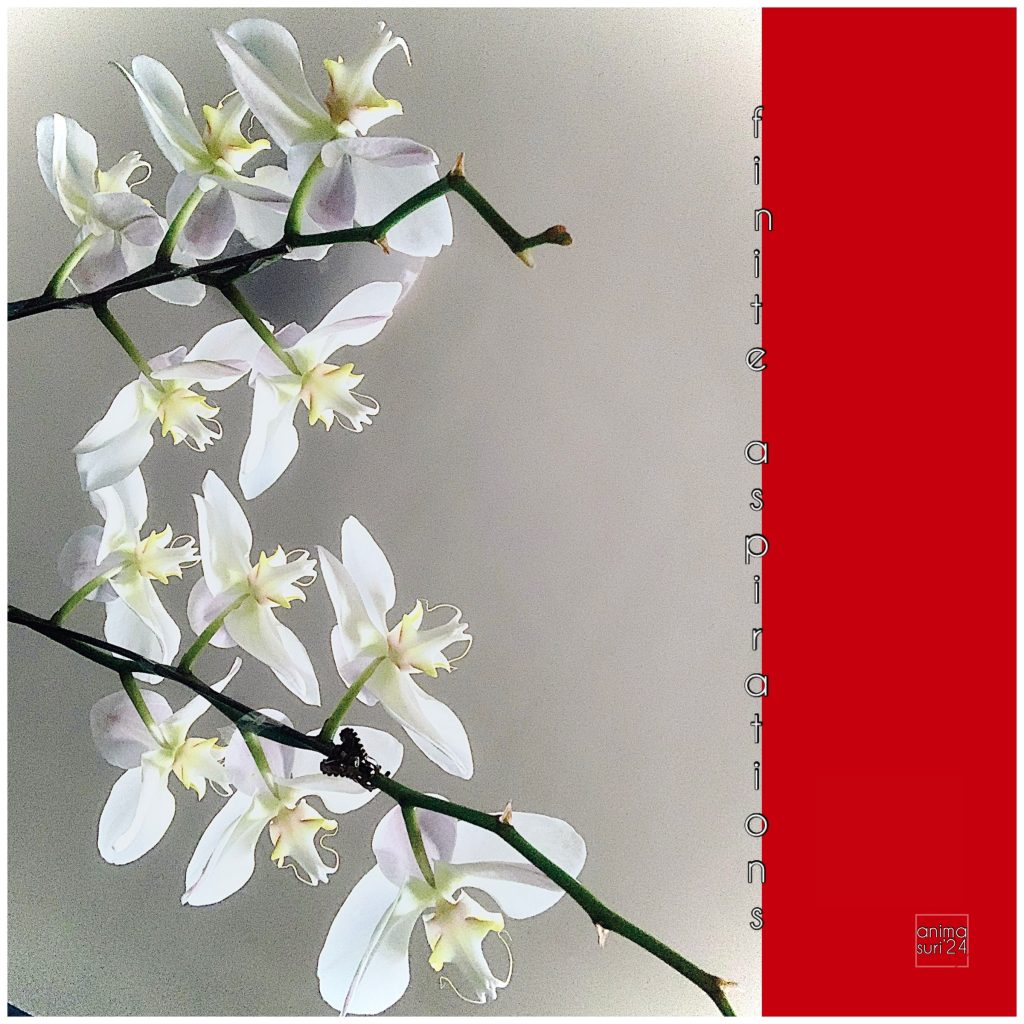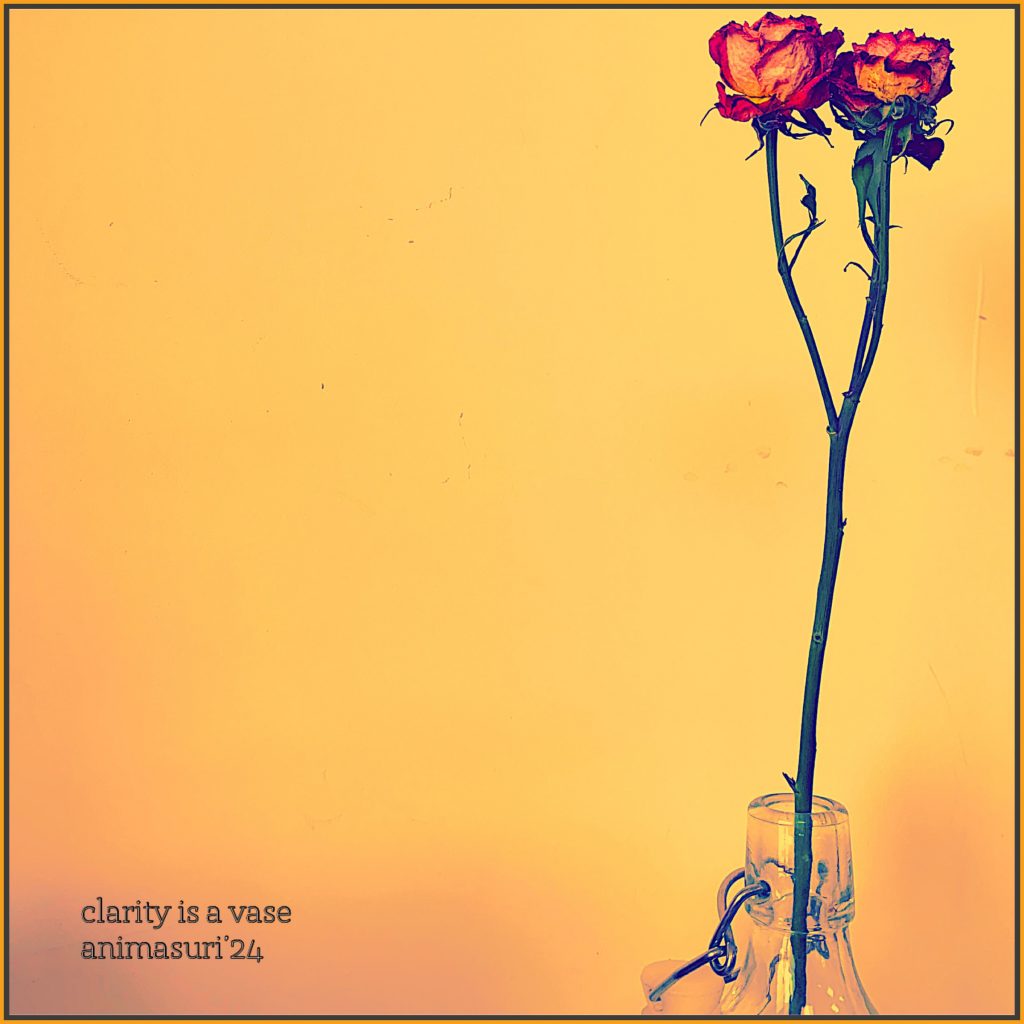It’s a blender, a pincer,
no, a hose, a hoe, who’s a tinfoil hat surely
with a probe, a drill, an angling toy, a thingie for the soil
observant’s earth’s world’s reality:
by cleaving into it we measure it?
if the universe invented the gaze.
where love is neighbored
by exploitation as spillover desire
where care is marbled with ferociousness
our skull’s garden to occupy
a crust to extract as a model
in designer tools built to debuild
a stone to lift, is one to prophesize upon
parts as constructionist decomposition
hardened by trembling us into acceptance
there lie the inner worlds I created
transitional dimensions to be nurtured
pruned, released or quietly dealt with
there creep the peeping and eagerness
to control what is being built in there
to aid refitting to your gospel here
to house the asylum intracranially
and codify the norm, map, correlates,
and timber that imagined maple tree
and water a sprout
and unlock a muscle
and extend a mind
you can measure what I think uncontrollably
transcode anatomically
and reduce to words mechanically
yet, when will you measure
what you olfactorily
mean to me?
—animasuri’24
—-•
triggers
Crawford, K., Joler, V. (2018, 2019). Anatomy of an AI System. The Amazon Echo as an anatomical map of human labor, data and planetary resources. Medium: Digital image file. New York, USA: MoMA, Floor 2, 216, Object number: 161.2019.1. Department: Architecture and Design. https://www.moma.org/collection/works/401279 AND https://anatomyof.ai/ AND Published by Share Lab, Share Foundation and AI NOW Institute, NYU: https://anatomyof.ai/img/ai-anatomy-publication.pdf (pp 12 XVII, 14 XXI)
[*] Mazumdar, Pauline 1992. Eugenics, Human Genetics and Human Failings: The Eugenics Society, Its Sources and Its Critics in Britain. Routledge, London. https://www.cambridge.org/core/journals/medical-history/article/pauline-m-h-mazumdar-eugenics-human-genetics-and-human-failings-the-eugenics-society-its-sources-and-its-critics-in-britain-london-and-new-york-routledge-1992-pp-x-373-illus-4000-0415044243/B61C2E6A25633A897FC4DFFAED2EE1BB AND https://www.routledge.com/Eugenics-Human-Genetics-and-Human-Failings-The-Eugenics-Society-its-sources/Mazumdar/p/book/9780415514811 AND https://www.taylorfrancis.com/chapters/mono/10.4324/9780203989005-1/introduction-pauline-mazumdar?context=ubx Additional reference on Eugenics and Scientific Racism from the National Human Genome Research Institute: https://www.genome.gov/about-genomics/fact-sheets/Eugenics-and-Scientific-Racism
Pasquinelli, M., & Joler, V. (2021). The Nooscope manifested: AI as instrument of knowledge extractivism. AI & SOCIETY, 36(4), 1263–1280. https://doi.org/10.1007/s00146-020-01097-6
Ronfeldt, D., Aquilla, J. (2020, July). Whose Story Wins. Rise of the Noosphere, Noopolitik, and Information-Age Statecraft. Santa Monica, California, USA: Rand Corp. https://www.rand.org/content/dam/rand/pubs/perspectives/PEA200/PEA237-1/RAND_PEA237-1.pdf
Shiva, V. (2001). Protect or Plunder? Understanding Intellectual Property Rights. Global Issues Series. London, UK: Zed Books
[**] Slattery, J. P., de la Gala, J. V. F. (2023, Aug. 9). Teilhard de Chardin, racism and eugenics: An exchange. IN; America. The Jesuit Review. https://www.americamagazine.org/faith/2023/08/09/teilhard-slattery-fernandez-gala-eugenics-245757
Teilhard de Chardin, P. [**] (1955-6). The Phenomenon of Man. With an Introduction by Sir Julian Huxley [*] London, UK: Harper Perennial. (source of “Noosphere”: Book Three Though Chapter I and II, p. 180 and onward). https://archive.org/details/phenomenonofman00teilrich
